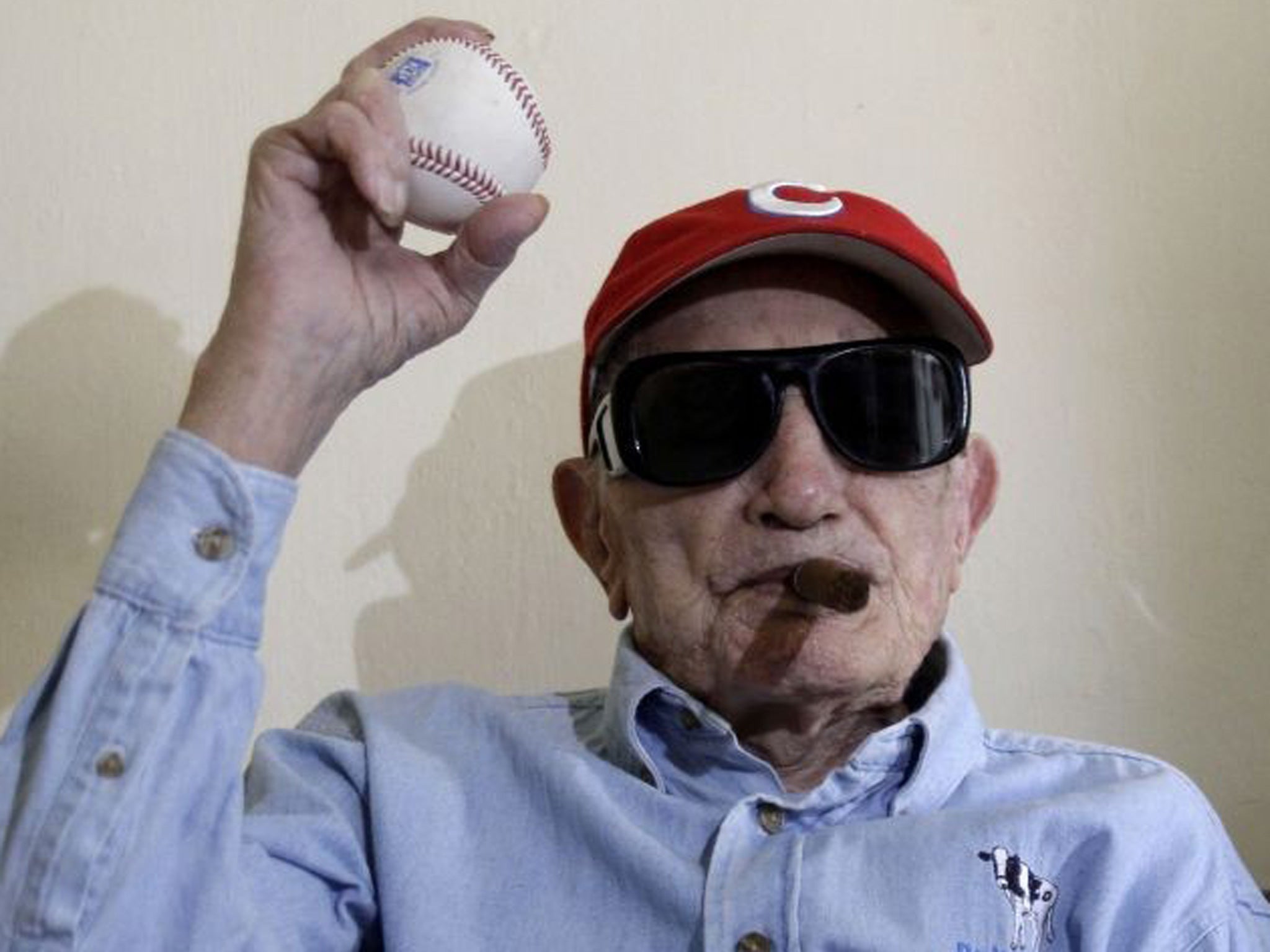Connie Marrero: Pitcher who became one of Cuban baseball’s most successful exports to the United States in his thirties

Your support helps us to tell the story
From reproductive rights to climate change to Big Tech, The Independent is on the ground when the story is developing. Whether it's investigating the financials of Elon Musk's pro-Trump PAC or producing our latest documentary, 'The A Word', which shines a light on the American women fighting for reproductive rights, we know how important it is to parse out the facts from the messaging.
At such a critical moment in US history, we need reporters on the ground. Your donation allows us to keep sending journalists to speak to both sides of the story.
The Independent is trusted by Americans across the entire political spectrum. And unlike many other quality news outlets, we choose not to lock Americans out of our reporting and analysis with paywalls. We believe quality journalism should be available to everyone, paid for by those who can afford it.
Your support makes all the difference.As is well known, Cuba and the United States have their differences. But at least one thing unites them, the game of baseball. And no one symbolised that shared affection better than Connie Marrero, one of his island’s most successful exports to America, who made his debut in the major leagues at an age when most players are well into their retirement.
Marrero grew up in rural Cuba working on sugar plantations. But his baseball talent, first as an infielder and then a pitcher, was soon apparent. In 1939 and 1940 he led the country’s amateur team to two world championships, becoming a national hero in the process, before turning professional.
In 1947 he was signed up by the Washington Senators and spent three years in the Senators’ minor league team in Havana – at that time Cuba was an unofficial American province and Fidel Castro was no more than a troublesome but little-known student activist (and also, it might be added, a decent baseball player). Finally, at the ripe old age of almost 39, Marrero was called up to the big time, across the Strait of Florida.
Back then the Senators were a terrible team. “First in war, first in peace and last in the American League,” ran the joke about Washington DC, but Marrero was an exception to the rule. Quickly, the combination of his playing ability and colourful habits turned him into a cult hero for Washington fans who had little else to cheer.
His exact age was part of the mystery. So was his height, officially 5ft 5 in, diminutive by baseball standards then and now, and which led one sportswriter of the day to describe him as “a muscle-bound little gnome.” Then there was Marrero’s erratic command of English, and the large Cuban cigar forever wedged between his teeth, even in the dug-out, that earned him yet another nickname, “The Havana Perfecto”.
Finally, there was his pitching style. According to Life magazine, he was “the most implausible ball player in the US,” who threw the ball “like an orang utan heaving a 16-pound shot.” Another observer, the celebrated player and manager Felipe Alou, described Marrero on the mound as “a cross between a windmill gone berserk and a mallard duck trying to fly backwards.”
But it worked. He didn’t throw especially hard, but he had immaculate control and a baffling variety of pitches. In the five years he played in Washington his victims included such legendary hitters as Joe DiMaggio, Mickey Mantle and Ted Williams, who once paid him the rueful compliment that he “threw everything except the ball.” Overall, Marrero compiled a win-loss record of 39-40 and an earned run average of 3.67, more than respectable on a permanently struggling team.
But even Connie Marrero, pitching just one day in seven, could not defy the advancing years indefinitely. On 7 September 1954, at the age of 43, he made his last appearance for the Senators and was released by the organisation in early 1955. Shortly afterwards he returned home, devoting himself to nurturing young Cuban baseball talent.
In 1959 Castro, now revolutionary leader, swept to power at the head of a Communist regime. Marrero however stayed, content with baseball and safe in his country’s affection, but saddened by the political estrangement with Washington.
“I’m Cuban and I came back to the place where I was born,” he said in an interview in 2012, “but I wish our countries could be united again, just like the way they used to be.” With his death in Havana, two days before his 103rd birthday, baseball in America lost its oldest surviving major leaguer.
RUPERT CORNWELL
Conrado Eugenio Marrero Ramos, baseball player: Born Sagua la Grande, Cuba 25 April 1911; pitcher, Washington Senators 1950-1954; died Havana 23 April 2014.
Subscribe to Independent Premium to bookmark this article
Want to bookmark your favourite articles and stories to read or reference later? Start your Independent Premium subscription today.
Join our commenting forum
Join thought-provoking conversations, follow other Independent readers and see their replies
Comments